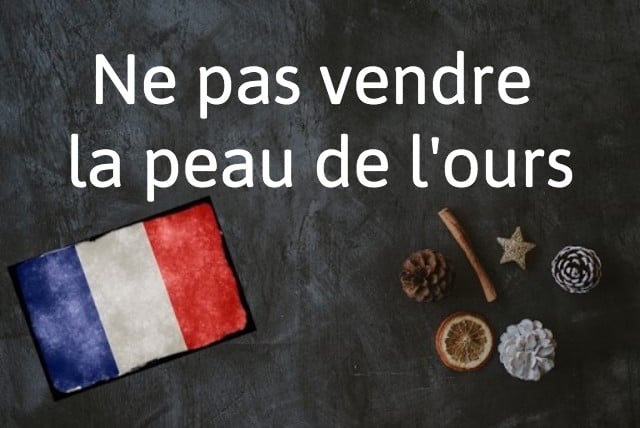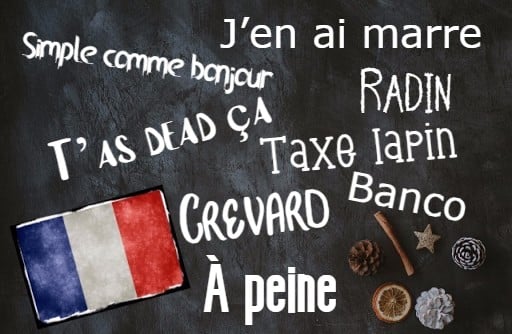Why do I need to know ne pas vendre la peau de l’ours?
Because it’s one of those many French animal expressions that show you’re really mastering the language.
READ ALSO: 15 everyday French expressions inspired by animals
What does it mean?
Ne pas vendre la peau de l’ours translates as ‘not to sell the bearskin’, which sounds like something you wouldn’t need to worry about unless you are a bear hunter.
However it’s really a figurative expression meant to provide useful advice for everyone – no bears needed.
The full proverb goes: il ne faut pas vendre la peau de l’ours avant de l’avoir tué, which means ‘you mustn’t sell the bearskin before having killed the bear’.
As you probably have understood, it’s caution against acting prematurely, or giving promises you might not be able keep.
The idea is that presuming something will happen before it has happened is a bad idea. Don’t throw a victory party before you have actually won, the warning goes.
The English equivalent is ‘don’t count your chickens before they have hatched’.
Vendre la peau de l'ours avant de l'avoir tué – "To count your chickens before they're hatched"⠀
⠀
Read the lesson and examples and listen to the pronunciation on the #lawlessfrench site (link in bio) ⠀
⠀#frenchexpression #learnfrench #fle #french #… https://t.co/FxtRMR7Qf3 pic.twitter.com/8iDAt5kR5K— Mot du jour (@french_word) April 7, 2020
Use it like this
Allez les gars, le match n’est pas encore terminé ! Ne vendez pas la peau de l’ours avant de l’avoir tué. – Come on guys, the game isn’t over yet! Don’t count your chickens before they’ve hatched.
Je pense qu’on s’est bien entendus, mais enfin je ne veux pas vendre la peau de l’ours trop tôt.. Je ne sais pas encore si elle voudra me revoir. – I think we got along well, but hey, I don’t want to count my chickens too soon. I don’t know yet if she wants to see me again.
Cette réforme ne passera pas. Le gouvernement a vendu la peau de l’ours avant de l’avoir tué, et ils en payeront le prix lors de la prochaine élection. – This reform won’t pass. The government celebrated too soon, and they will pay the price in the next election.



 Please whitelist us to continue reading.
Please whitelist us to continue reading.
Member comments